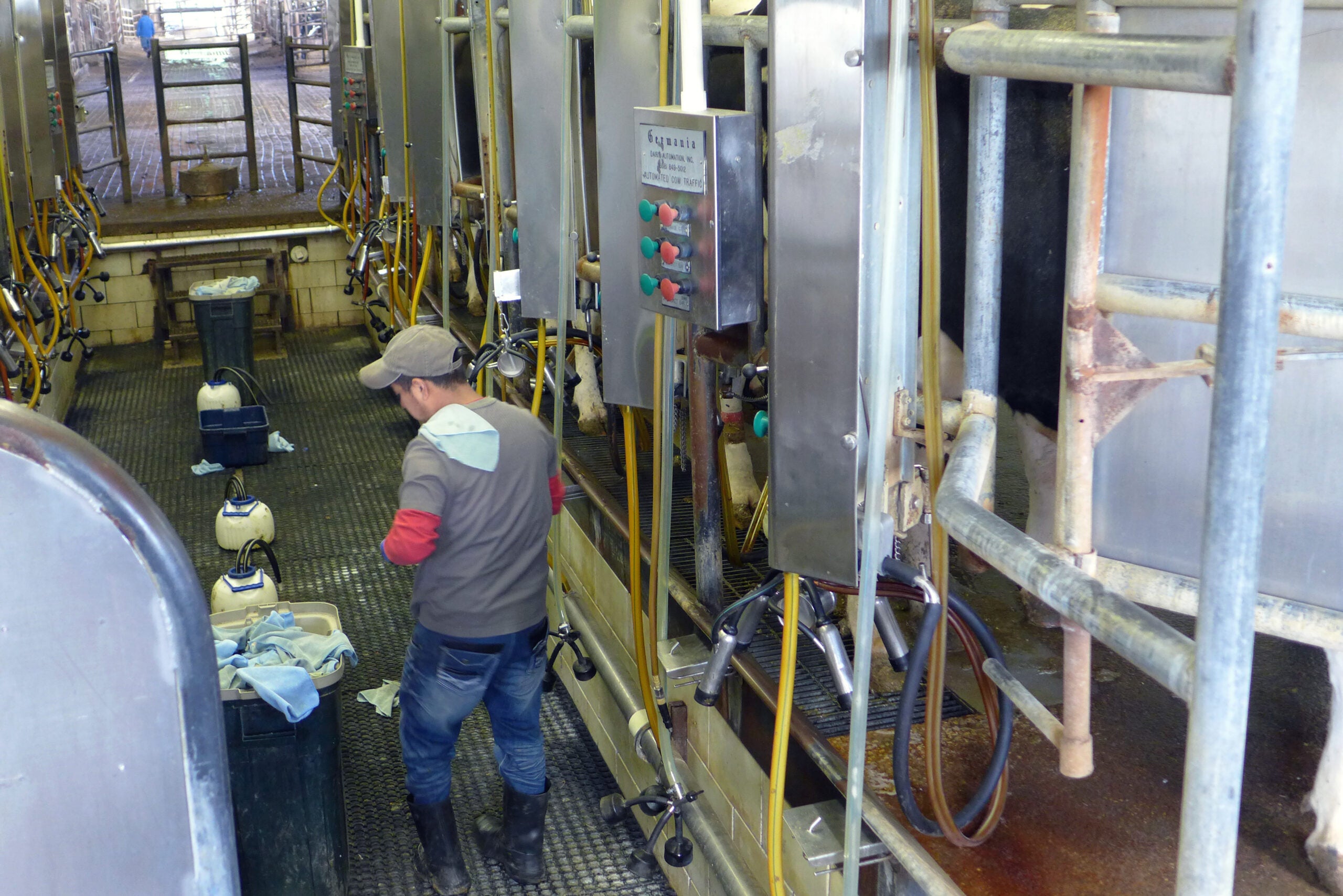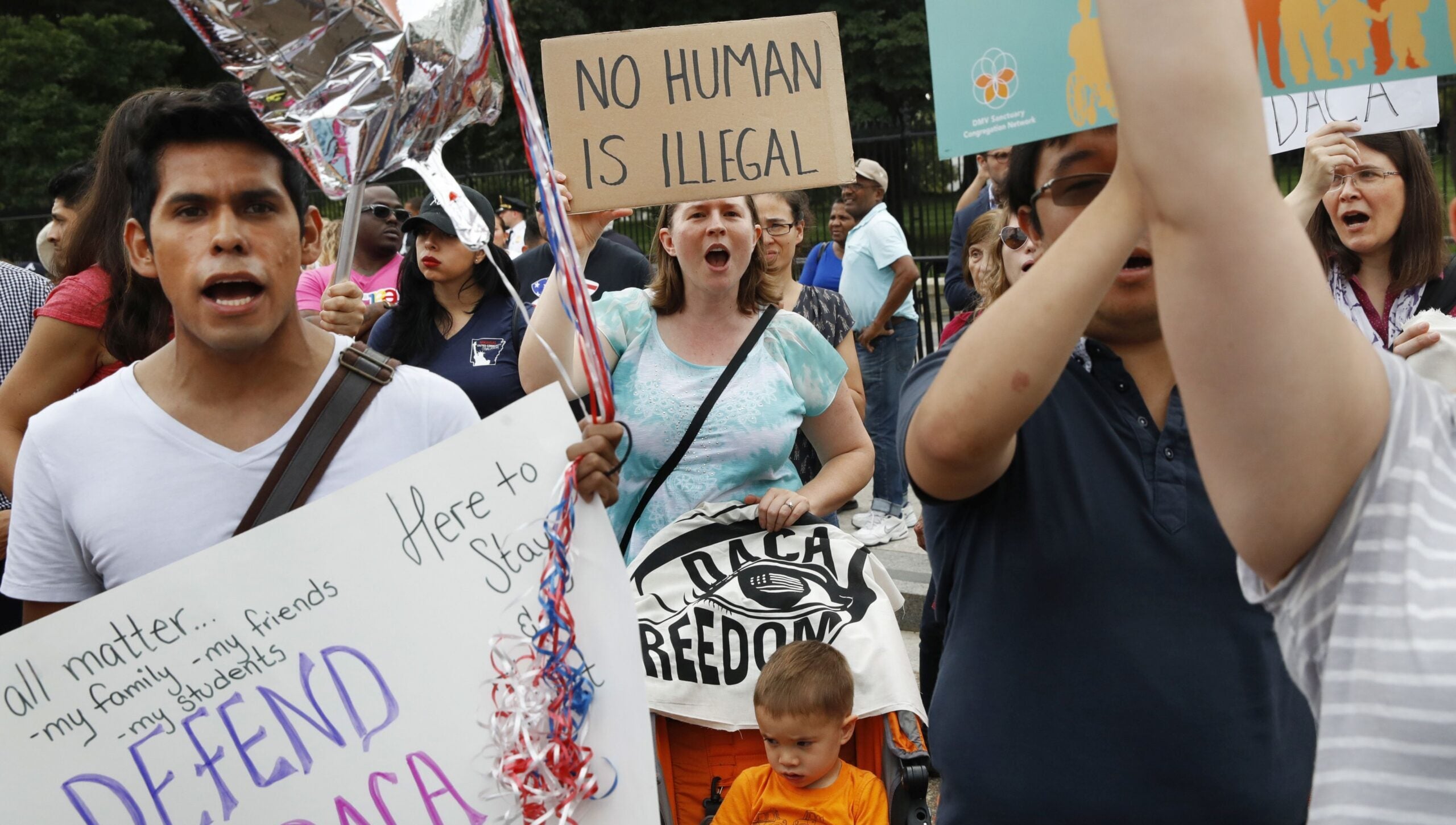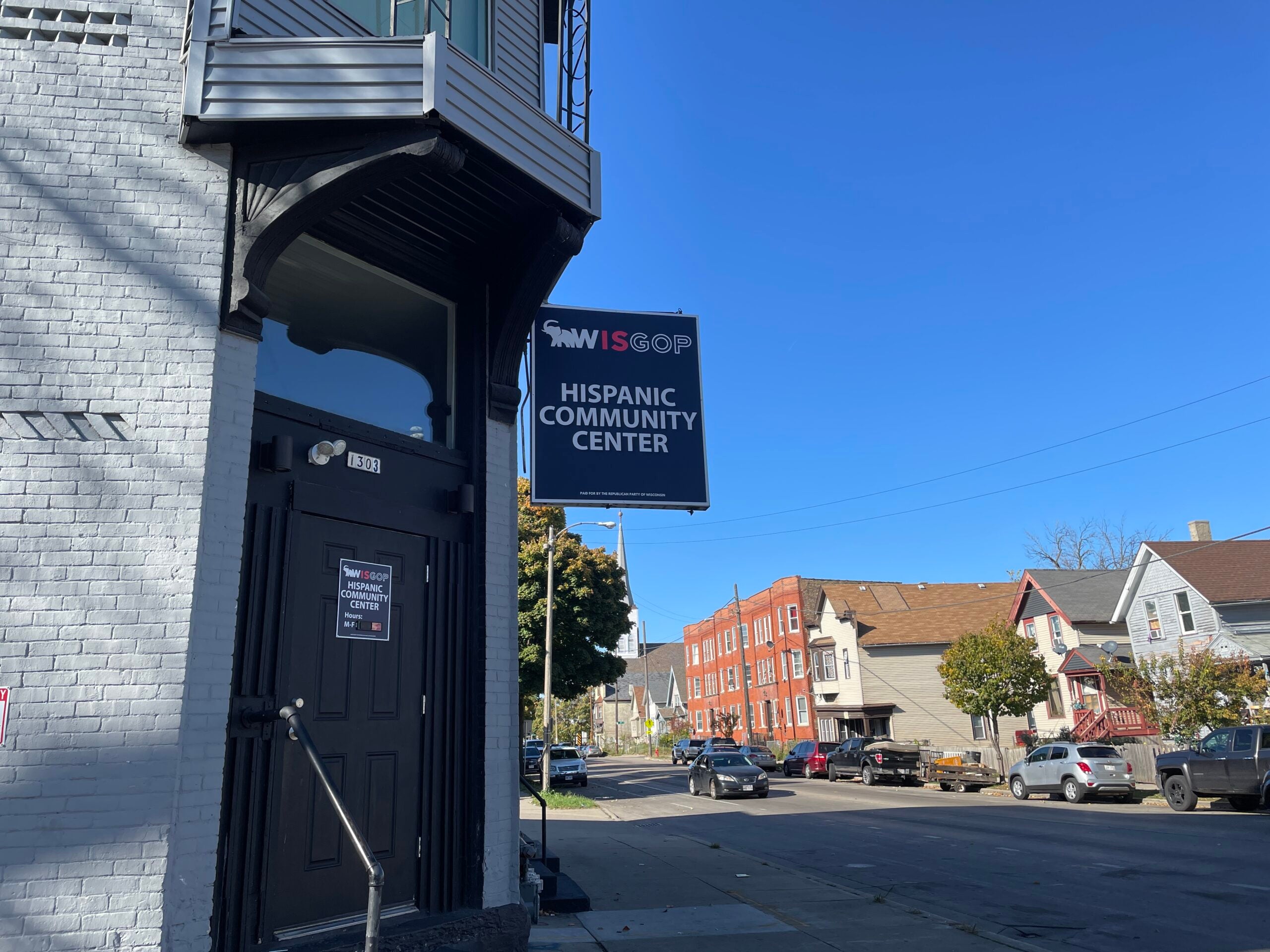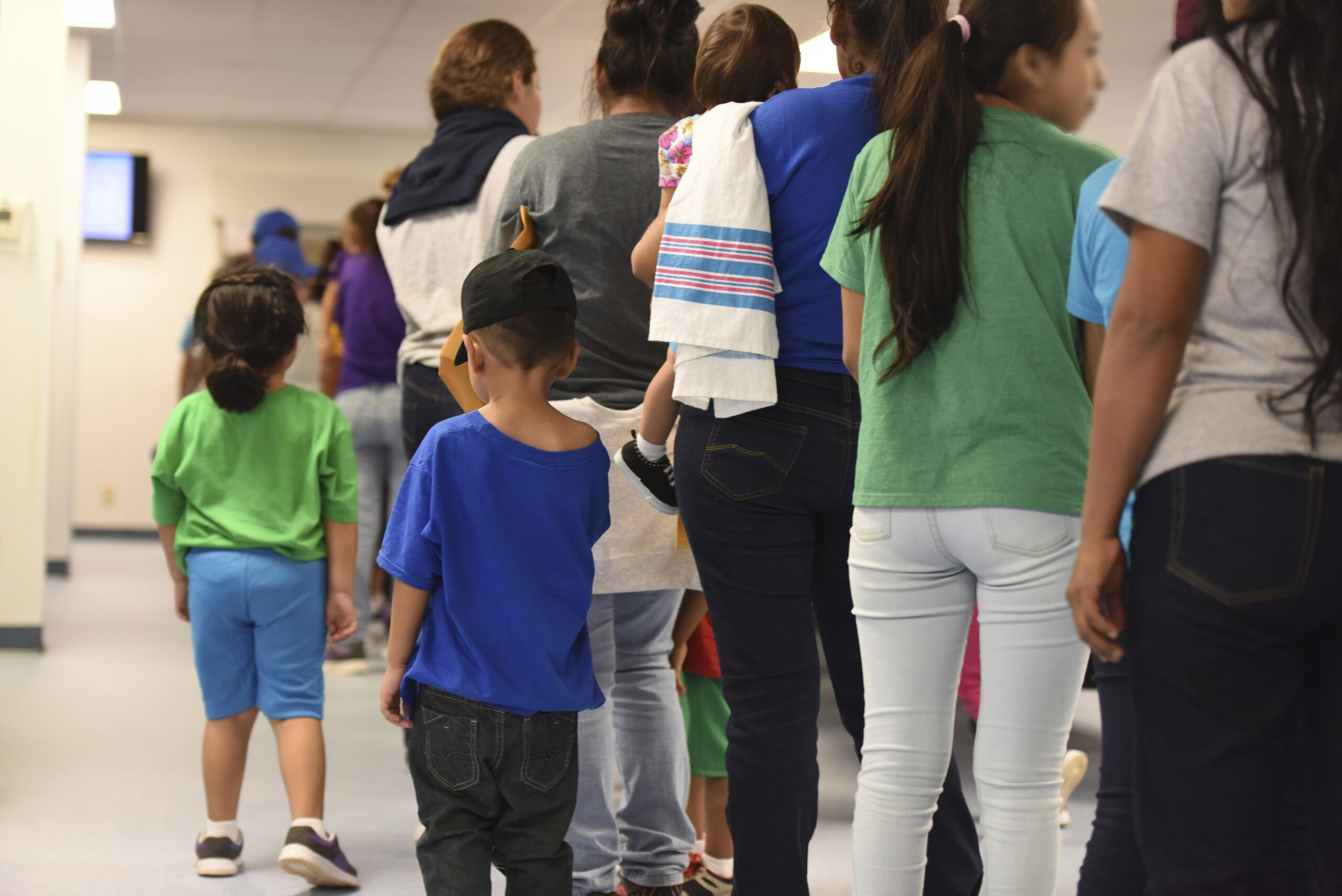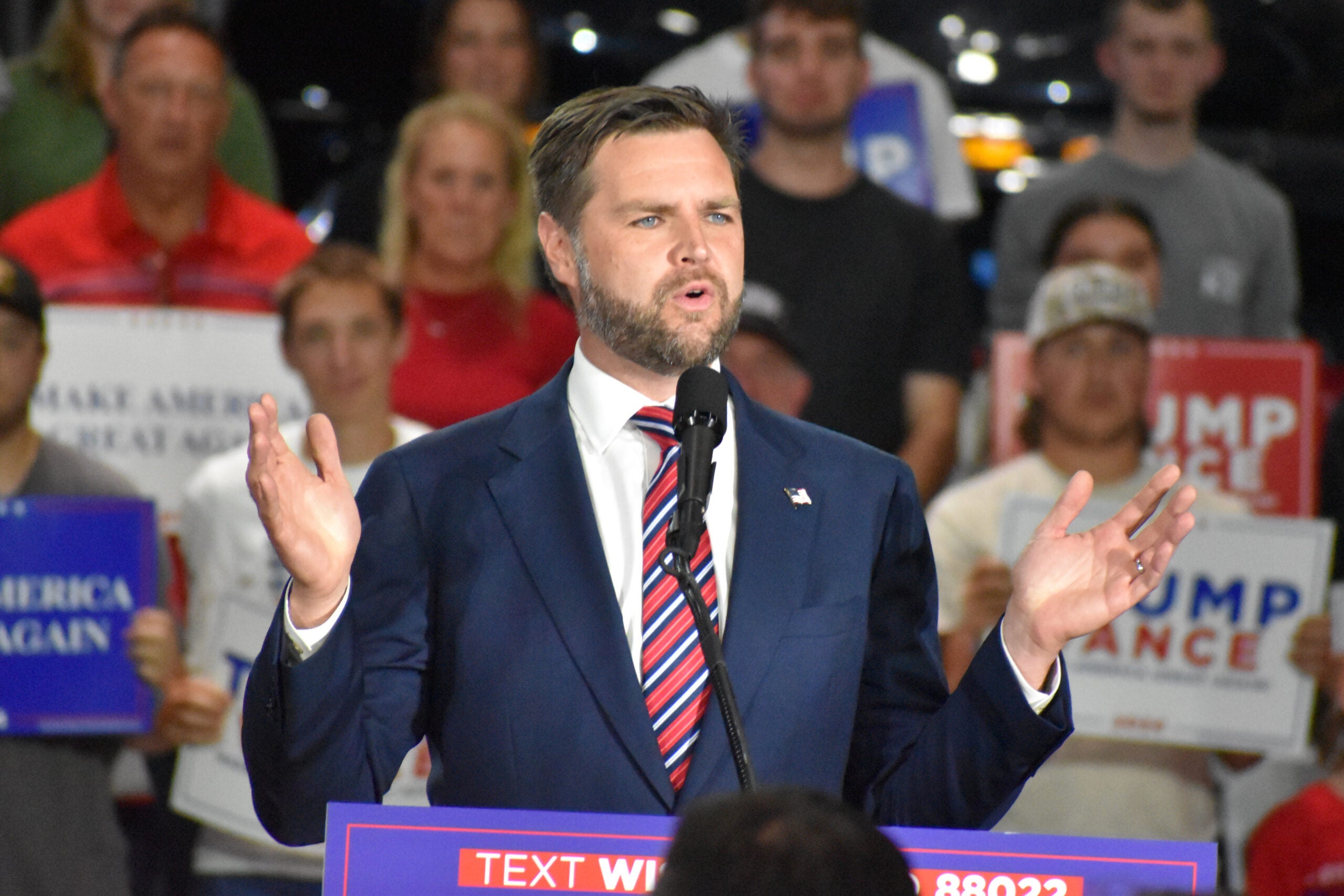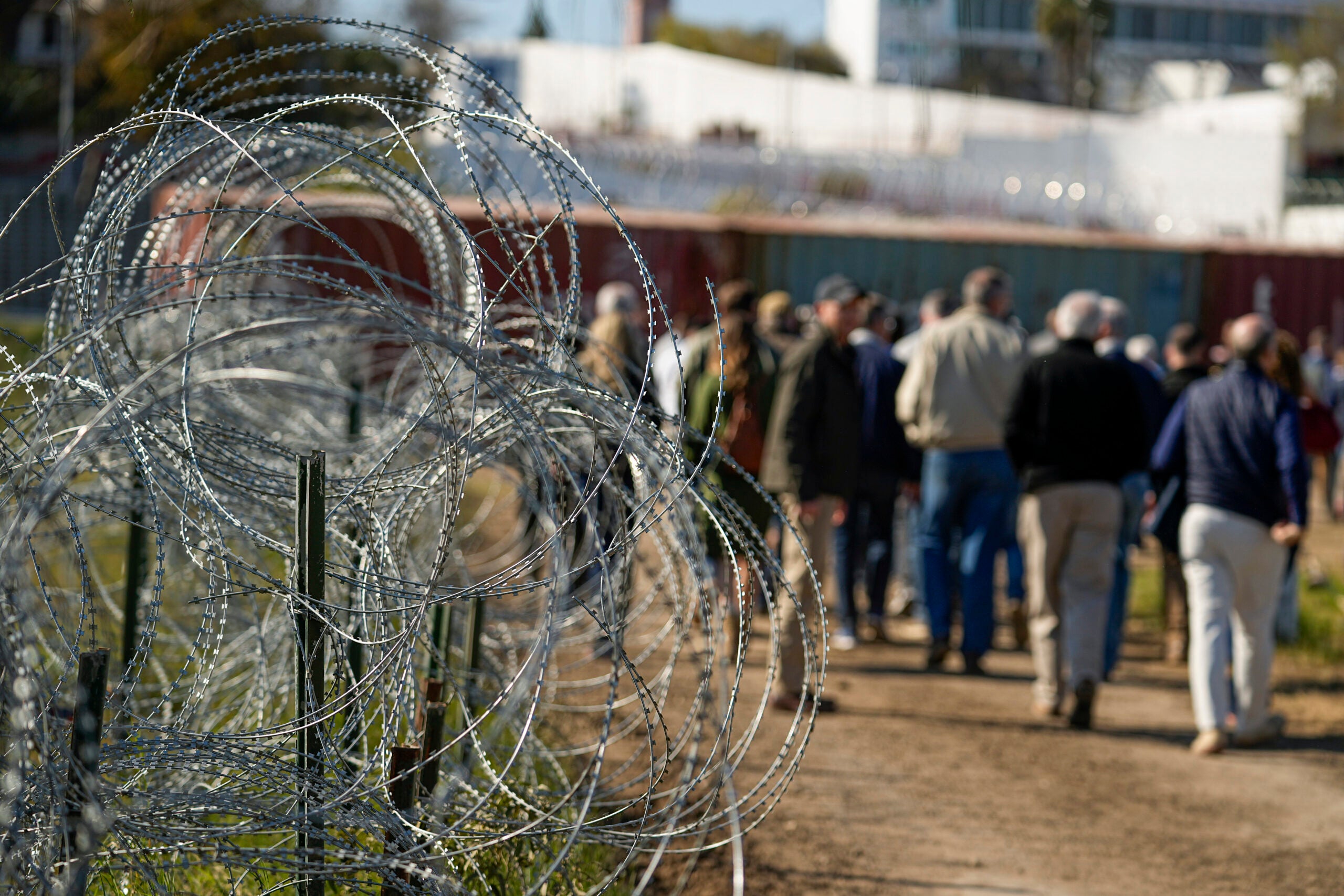In a modest two-bedroom apartment in Eau Claire recently, a woman named Rosy who declined to give her last name, watched a Spanish newscast on Univision from her couch while a parakeet chirped in the background.
Eight years ago, Rosy immigrated to Wisconsin from Mexico, hoping her daughter could receive a better education.
Though she won’t vote in the upcoming presidential election, Rosy said she supports Democratic nominee Hillary Clinton. But Rosy, who works at a restaurant and didn’t provide information about her documentation status, is skeptical of Clinton’s promise of a pathway to citizenship.
Stay informed on the latest news
Sign up for WPR’s email newsletter.
“I like what she’s saying in regards to the Latin community and what she’s proposing to do, but at this time, we don’t know if she’s actually going to really follow through with them because we’ve been through that with Obama and everything he’s promised to do, and nothing of that has come to fruition,” Rosy said through an interpreter.
In 2008, President Barack Obama promised comprehensive immigration reform. Eight years later, that goal has proven elusive.
Immigration has become a prominent topic in this year’s presidential campaign, and the stakes are high for Wisconsin and its estimated 85,000 undocumented immigrants, according to the Pew Research Center.
Clinton’s immigration reform plan includes a pathway to citizenship and ending the detention of parents and children who arrive at the border. Meanwhile, Republican nominee Donald Trump is calling for a wall on the border of Mexico and the U.S.
Trump has backtracked from his primary campaign pledge to deport 11 million undocumented immigrants from the U.S. But during the final presidential debate, Trump doubled down on his pledge to deport immigrants who have committed crimes in the U.S.
“We’re going to secure the border, and once the border is secured, at a later date, we’ll make a determination as to the rest, but we have some bad hombres here, and we’re going to get them out,” Trump said.
It’s statements like this that worry immigrants such as Fermin, a gregarious 50-year-old man who came to Wisconsin eight years ago.
Fermin, who also declined to give his last name, has been sending money back to his wife and children in Veracruz, Mexico, with plans to work two or three more years before heading home himself.
He doesn’t think Trump will win the presidency but, speaking through an interpreter, he said Trump’s language and tone regarding immigration is driving racial division.
“I think, absolutely, that he’s provoking discrimination, and what he’s trying to do is separate people instead of unify people,” Fermin said.
The kind of mass deportation Trump has talked about would be disastrous for both sides of the border, he said.
“It’s facing what is real. The Mexican government isn’t ready or able, isn’t prepared to receive 11 million immigrants,” Fermin said.
As Fermin went about his work at Rosenholm-Wolfe Dairy in the town of Waumandee, the farm’s co-owner John Rosenow stood by in his concrete and metal milking parlor as pneumatic pumps drew simultaneously from eight Holstein cows. At the controls was a young man from Mexico.
Rosenow has nine employees, all of whom hail from the eastern Mexican state of Veracruz and many from the same villages and towns.
In 2009, undocumented immigrants accounted for 40 percent – or about 5,300 people – of all hired help on dairy farms in the state, according to an analysis from the University of Wisconsin-Madison.
Presidential politics have infiltrated the farm this year, Rosenow said. He is concerned Trump could deport millions of undocumented immigrants from the U.S. If that happens, it would drive many Wisconsin dairies out of business, Rosenow said.
“So, the dairy industry in Wisconsin is decimated, like now,” Rosenow said.
When it comes to their immigration status, Rosenow’s attorney advises him not to ask too many questions in order to avoid discrimination lawsuits.
“She told me that you look at the documents. If they look real accept them.” Rosenow said. “The alternative is you can be really zealous and say, ‘Oh, you’re Mexican, so these must be illegal. You must be illegal, so these documents must be forged.’”
But the debate over changes to U.S. immigration policy has hardly died down in 2016. It’s left lingering questions about how the next president’s ideas will affect Wisconsin’s economy and the tens of thousands of undocumented workers living here.
Wisconsin Public Radio, © Copyright 2025, Board of Regents of the University of Wisconsin System and Wisconsin Educational Communications Board.

